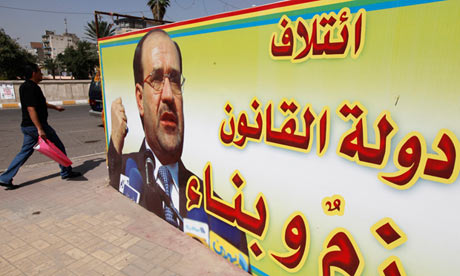By Justin Dorman
Impunity Watch Reporter, Middle East
BAGHDAD, Iraq – Many Iraqi provincial elections will be held today. Hopefully no more people will be murdered in the process. In the days preceding today’s elections, many were killed, both candidate and civilian.

Late Thursday night, at approximately 9:30pm, a suicide bomber blew himself up in a crowded Baghdad cafe on the third floor of a Sunni neighborhood in Amiriyah. Many young people congregated to play pool and smoke hookah not knowing that it would be their last pocket called or smoke ring blown. Approximately thirty-two individuals were killed, and more than fifty individuals were injured.
Earlier that day, an armed convoy in Mosul was attacked. A car bomb ultimately killed three soldiers and wounded five others. Also that day, a policeman was gunned down at a security checkpoint in western Baghdad. Three others were injured in the process.
A few days earlier, on April 14th, Sunni politicians were assassinated in Diyala and Saladin. Najem al-Harbi, a candidate for the Dialogue Front in the Diyala election, along with his two brothers and son were murdered in an ambush in Baqouba. The Dialogue Front which is led by Saleh al-Mutlaq, is seen as a group of political dissidents by Ayad Allawi. Harbi was imprisoned for the past couple of years on charges of terrorism. Nevertheless, he received the highest number of votes during the parliamentary elections while he was still in prison.
In Saladin, a Sunni candidate of the al-Ensaf Front was shot and killed a few hours after the special army and police ballot voting was finished. Sarhan was passing through the market in Baiji when silenced guns shot him down in a drive by.
An additional attempt was made on another Sunni politician in Baqouba when a roadside bomb was set off. The politician lived and only two of his bodyguards were wounded.
No one knows who the perpetrators are of these killings. It is unknown as to whether these are the acts of separate individuals or a group plotting together. This may be the work of those who oppose Prime Minister Maliki, as these Sunni politicians were known to be allies of his. These killings could have also ben committed by extremist Shiites or even al-Qaeda trying to cause sectarian disputes between Iraqis.
For further information, please see:
Al Jazeera – Dozens Killed in Baghdad Cafe Explosion – 19 April 2013
International Business Times – Death Toll in Baghdad Cafe Rises to 32 as Iraq Gears to Face Provincial Elections on April 20 – 19 April 2013
Guardian – Baghdad Suicide Bomb Causes Carnage – 18 April 2013
Al Monitor – Iraqi Provincial Elections Bring Wave of Violence, Assassination – 17 April 2013
